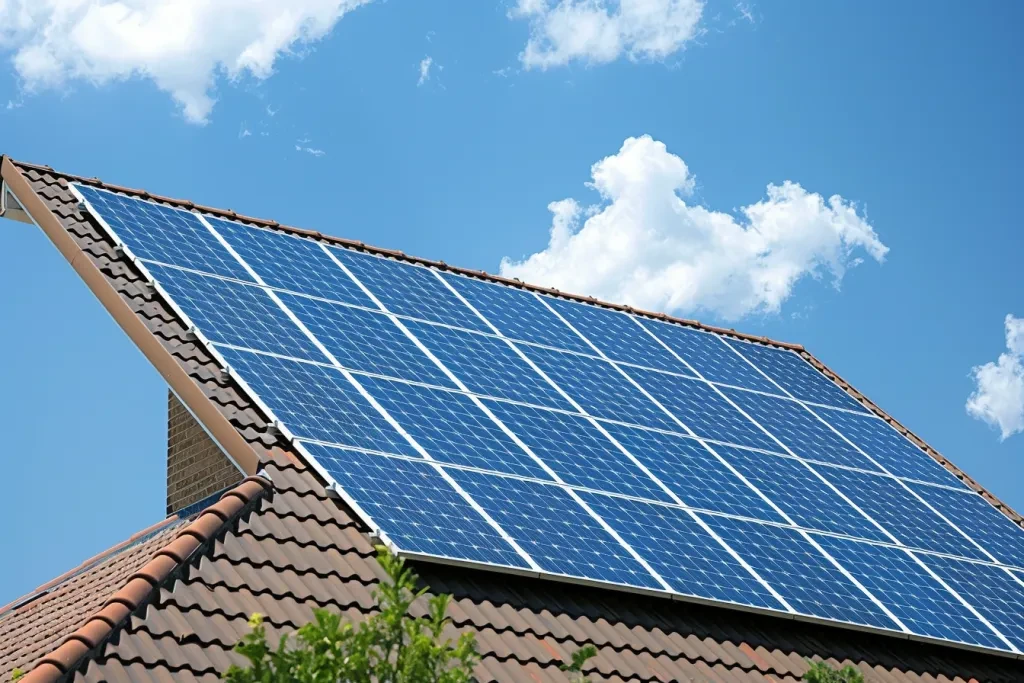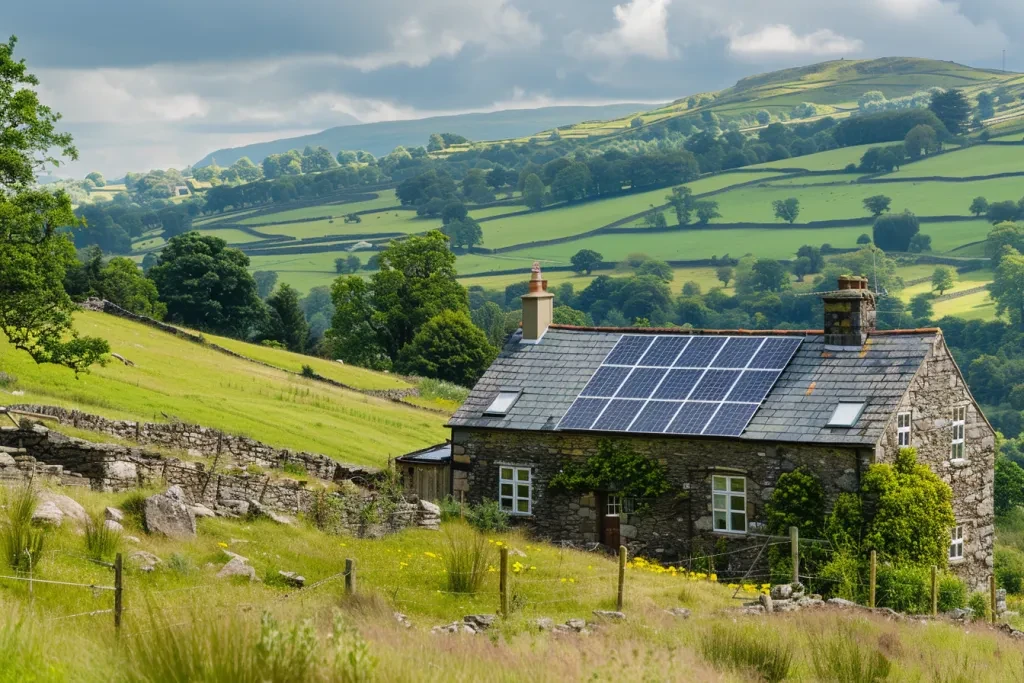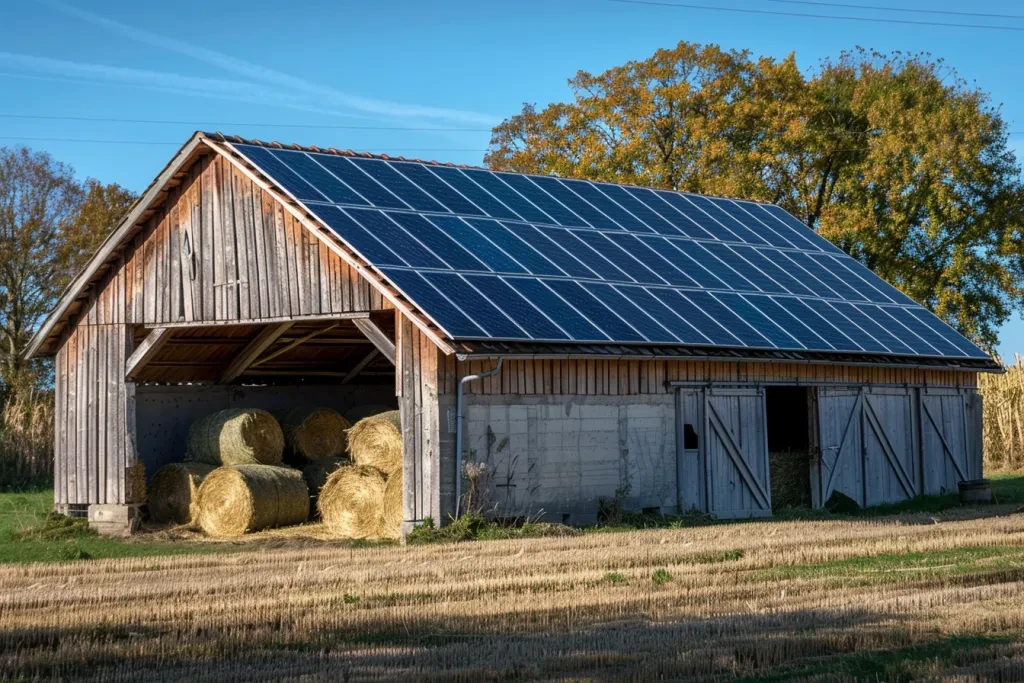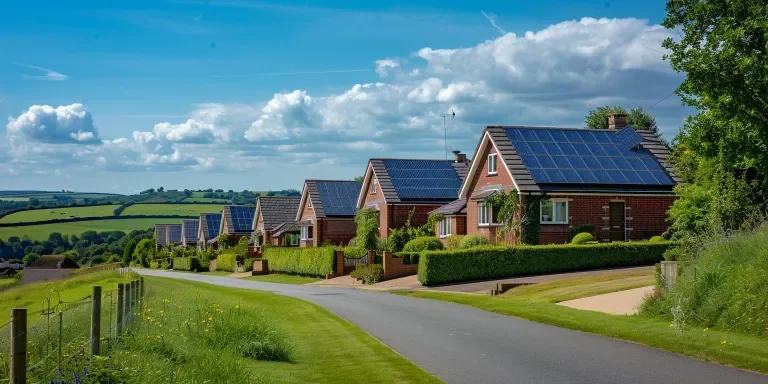The shift towards renewable energy sources is more pronounced than ever in the UK, with solar energy taking a front seat in this transformation. Solar panels, devices that convert sunlight into electricity, have become increasingly popular for their sustainability and efficiency. This article delves into the key aspects of solar panels in the UK, addressing common questions and providing insights to help you understand and potentially embrace solar energy.
Table of Contents:
1. How solar panels work
2. The benefits of installing solar panels in the UK
3. The cost and financial incentives
4. Choosing the right solar panel system
5. Maintenance and longevity of solar panels
How solar panels work

Solar panels consist of photovoltaic (PV) cells that convert sunlight into electricity. This process, known as the photovoltaic effect, involves the absorption of photons by PV cells, creating an electric current. Solar panels in the UK are designed to maximize efficiency even on cloudy days, making them a viable option throughout the country. Understanding the technical nuances of how solar panels work is crucial for anyone considering their installation.
The efficiency of solar panels has significantly improved over the years, thanks to advancements in technology. Modern solar panels are capable of converting a higher percentage of sunlight into electricity, making them more effective than ever. This efficiency plays a critical role in the overall output of a solar panel system, influencing both its performance and the return on investment.
Despite the UK’s reputation for overcast weather, solar panels can still produce a substantial amount of electricity. The orientation and angle of installation can optimize the amount of sunlight captured, enhancing the system’s efficiency. This adaptability to different weather conditions and environments underscores the versatility of solar panels as a renewable energy source.
The benefits of installing solar panels in the UK

Installing solar panels in the UK comes with a myriad of benefits, ranging from financial savings to environmental impact. Firstly, solar energy can significantly reduce electricity bills by generating a portion, if not all, of a household’s or business’s electricity needs. This reduction in reliance on the grid translates to direct savings and protection against future energy price hikes.
From an environmental perspective, solar panels contribute to reducing carbon emissions, a major factor in climate change. By harnessing the sun’s power, solar energy provides a clean, green source of electricity, minimizing the carbon footprint of its users. This shift towards renewable energy aligns with global efforts to combat climate change and promotes sustainability.
Moreover, the UK government offers various incentives and schemes to encourage the adoption of solar energy. These financial incentives, such as the Smart Export Guarantee (SEG), reward solar panel owners for exporting surplus electricity back to the grid, further enhancing the economic appeal of solar panel installation.
The cost and financial incentives

The initial cost of solar panel installation in the UK can vary widely depending on several factors, including the size of the system, the type of panels, and the complexity of the installation. While the upfront investment may seem daunting, the long-term savings on energy bills and the available financial incentives can make solar panels a financially viable option.
Government schemes and incentives play a pivotal role in offsetting the initial costs and improving the return on investment for solar panel systems. The SEG, for example, allows homeowners to earn money for the excess electricity they generate and feed back into the grid. Additionally, the reduction in energy bills over time contributes to the overall savings, making solar panels an attractive investment.
It’s important to conduct thorough research and possibly consult with a financial advisor to understand the specific costs and incentives available. This preparation ensures that individuals can make informed decisions about the feasibility and potential benefits of installing solar panels.
Choosing the right solar panel system

Selecting the appropriate solar panel system requires consideration of several factors, including energy needs, roof space, and budget. The size and type of system directly influence its electricity output and efficiency, making it essential to assess one’s energy consumption and requirements beforehand.
There are various types of solar panels available in the UK, each with its own set of advantages and disadvantages. Monocrystalline and polycrystalline panels are popular choices, differing in efficiency, aesthetics, and cost. Understanding the differences between these options can help individuals choose the system that best suits their needs and preferences.
Professional advice and installation are crucial to maximizing the benefits of solar panels. Experts in the field can provide valuable insights into the most suitable system, orientation, and installation techniques, ensuring optimal performance and longevity.
Maintenance and longevity of solar panels

Solar panels are renowned for their durability and low maintenance requirements. However, occasional cleaning and inspections are recommended to ensure they operate at peak efficiency. Most solar panels come with warranties that guarantee their performance for up to 25 years or more, reflecting their long-term reliability.
The longevity of solar panels makes them a sound investment for the future. With minimal maintenance, they continue to provide clean, renewable energy for decades, contributing to both financial savings and environmental sustainability.
Regular monitoring of the system’s performance can help identify any issues early on, allowing for timely maintenance or repairs. This proactive approach ensures that solar panels remain an efficient and reliable source of energy over their lifespan.
Conclusion:
Solar panels offer a compelling option for those looking to reduce their energy bills and environmental impact. Understanding how they work, the benefits they provide, and the factors involved in choosing and maintaining a system can empower individuals to make informed decisions about solar energy. With the right preparation and investment, solar panels can be a valuable addition to homes and businesses across the UK, contributing to a greener and more sustainable future.




